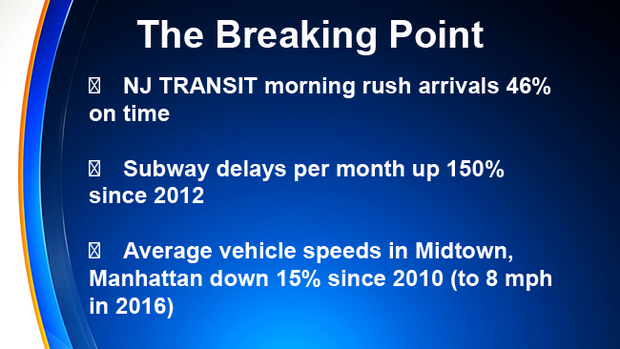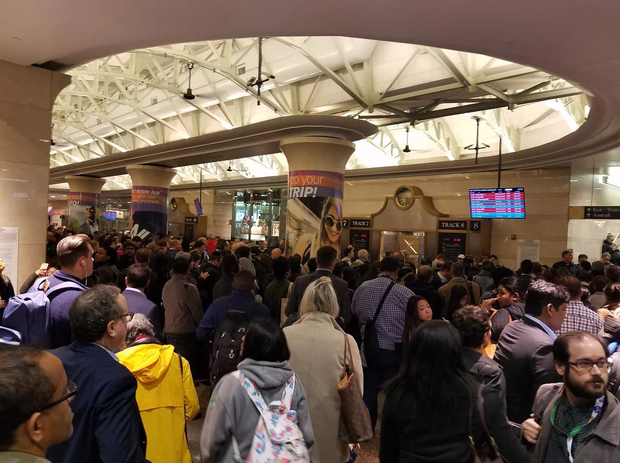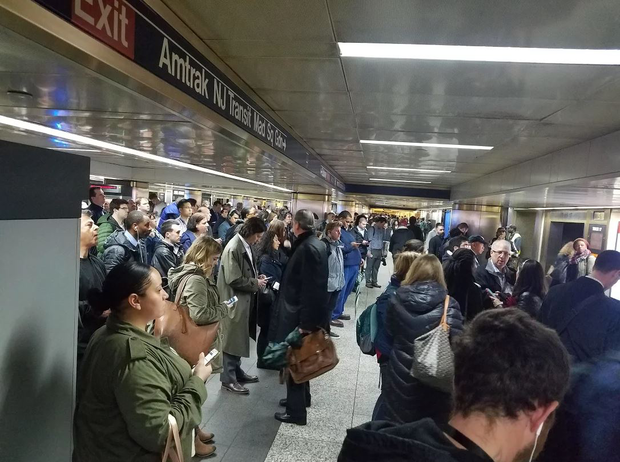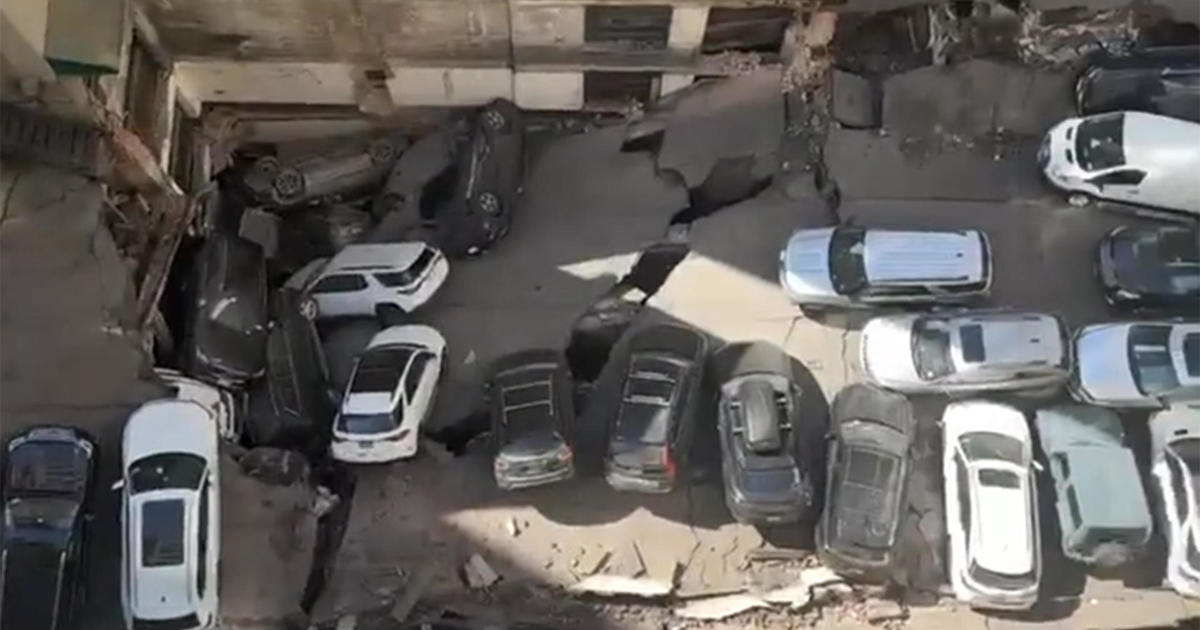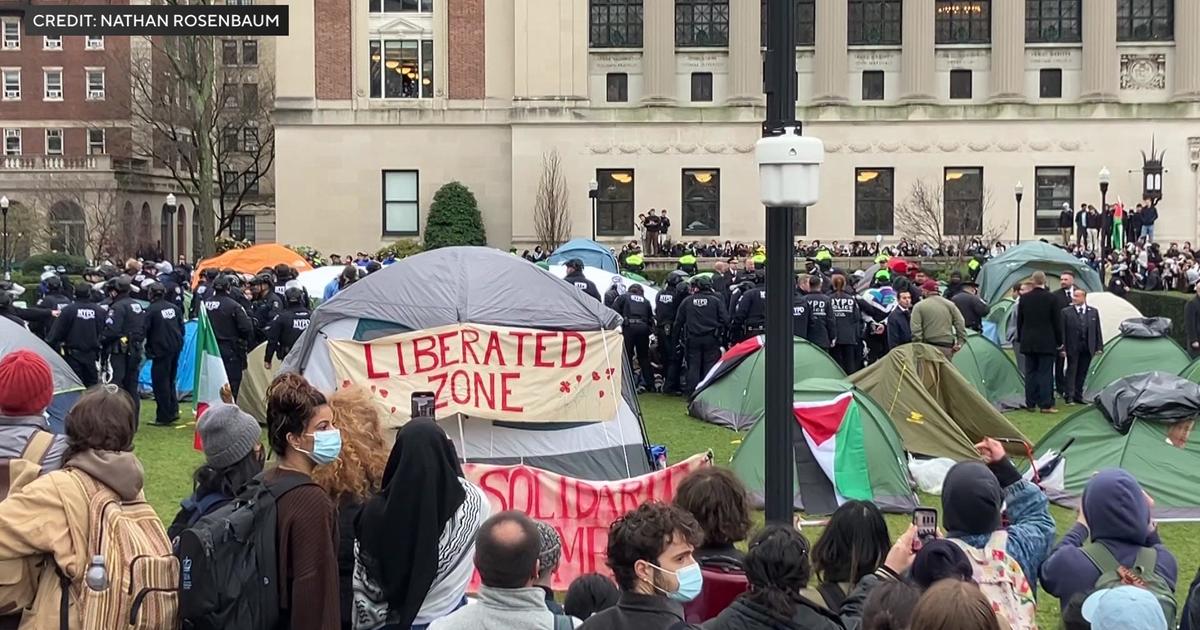The Breaking Point: Was It Inevitable?
NEW YORK (WCBS 880) -- All you have to do is walk up to a random person in a train station and say, "Tell me how it's been lately."
"A nightmare," one rider responds.
You can even hear it above ground these days.
"No more delays," others chant.
You hear it almost every day right here on the air.
"Again, Amtrak power problems at Penn Station," anchor Michael Wallace said.
"Before you take mass transit -- which is what everyone tells you to do, because it's the right thing to do ecologically, environmentally – hold up. There's problems again this morning," anchor Wayne Cabot echoed.
And finally, we're starting to hear it from the people in charge.
"This is not what everybody signed up for," MTA board member Fernando Ferrer said.
"I understand the customers are frustrated. I don't blame them," added NJ TRANSIT Executive Director Steve Santoro.
"We're attacking this with an all-hands-on-deck attitude," MTA interim Executive Director Veronique "Ronnie" Hakim said.
"Declaring a state of emergency when it comes to the MTA," announced Gov. Andrew Cuomo.
How did we get here? To a place where fewer than half of NJ TRANSIT morning rush trains arrive on time. Where subway delays are up more than 150 percent in less than five years. Where our streets don't just feel congested – the data show – they are.
"It's not all of a sudden. It's been creeping up on us for a while," Ferrer said.
His point might be obvious to most, but what's also obvious is that now serious problems are popping up.
"All of a sudden the power went off, and the train basically stopped, and you could see what I thought were flames, and everyone started screaming," one rider said.
"Pandemonium everywhere, and sparks of fire everywhere," another added.
"We are now seriously at risk," said Mitchell Moss, who runs New York University's Rudin Center for Transportation Policy.
"This is a city and a region that is driven by productivity and work, not by taking it easy. It's not Portland, where the debate is whether to get coffee with almond milk or soy milk. It's not Seattle, where you debate whether to get your high in the morning or the evening. And it's not San Francisco, where the debate is whether or not I should even go to work that day," he continued. "This is a work-oriented culture. We need the subway and we need the commuter systems working."
We can agree on that much, and maybe we needed to reach this moment. Are we sort of at a breaking point where all of this is coming to a head?
"We're actually very fortunate," said Philip Plotch, who used to be the manager of planning for the MTA and now teaches political science and public administration at St. Peter's University.
"When everybody realizes it's a problem, that's when we can solve a problem. When people ignore it, that's when you really have to worry about it," he continued. "It's everybody in New York now – the business leaders, the elected officials, the subway riders. Even the non-subway riders realize there's a problem with the system, and all of a sudden we're seeing more resources put into it."
Cuomo made that clear when he recently announced, "We're going to commit to an addition $1 billion in the Capital Plan so the MTA has the resources."
Sounds great, right?
"There's been a gross exaggeration that more money will do the job," Moss said. "No."
In this special report series, we'll start with the big one: Penn Station. Next week, as the "Summer of Hell" gets underway, we'll examine what's actually happening there over the next two months. Why? And will it fix things?
Until then, safe travels.
